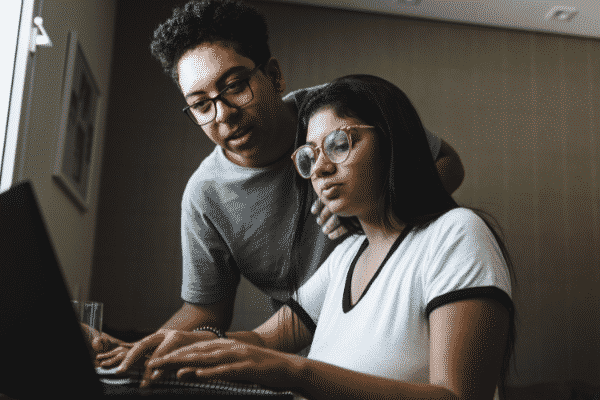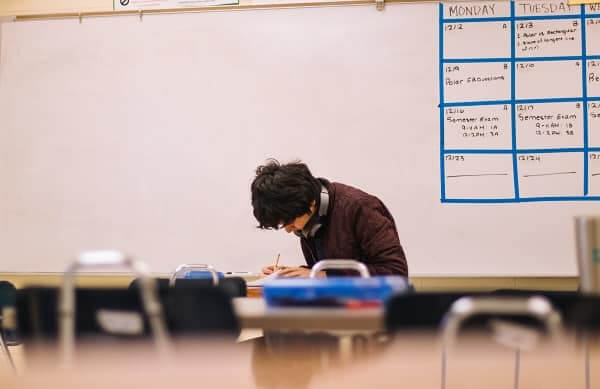There has been a bit of educational debate on learning loss during the extended periods of lockdown. Whilst debate is useful, the focus should be on the students and their learning, including the effect of loss of confidence, now and in the future.
Undoubtedly, when there is discontinuity in society, students learn things that were not anticipated by a curriculum. These things are called non-curricular outcomes. In the case of lockdowns, the biggest challenge has been in the realm of emotion. Curriculum learning becomes secondary when students are depressed, uncertain, afraid, and socially isolated.
Experienced educators know that managing emotion is central to managing learning. They talk about the need for students to be emotionally engaged in order for them to understand, remember, process, apply, and evaluate what they have learned.
When talking about learning loss, the key issue then is not how much has been lost to date or whether there have been even minor gains in curricular learning, rather what the ongoing effect of battered emotions will have on future learning once lockdowns are over.
What effect will a distrust of authority have on children who have been left behind over the past 18 months? What will happen to the most marginalised children in the future if the issue of disengagement and how to re-engage is not central to considerations now?

Learning loss is not a statement against teachers
A significant distracter in this debate about learning loss is that if we talk about how kids’ learning has been hampered, we are somehow having a go at teachers.
This is an erroneous and illogical argument. We can praise teachers and laud them for the way in which they have managed under stressful circumstances, with little time to adjust to the need for remote learning. Teachers have, on the whole, done a remarkable job in circumstances where they have had to adjust, manage teaching from home, and balance all this with impacted family life.
We can also recognise that in the transition from classroom to home learning, swathes of students have been disaffected.
My direct experience working with students and teachers in schools both urban and rural is that, uniformly, students have been largely disaffected by the lockdowns. Their learning has been disrupted. With usual social networks broken, mental health issues are on the rise, and I know schools where suicide is affecting the learning of several year groups.
Trusting curriculum authorities
If we are to trust curricular authorities, then it means we trust in the documents they create. Within curriculum documents, there are prescribed hours of learning. Whether we like it or not, any cogent analysis of time would demonstrate unequivocally that no curriculum has been able to be taught to its prescribed hours during lockdown. By definition, something has been lost.
Uncertainty brings loss of pace
When we are uncertain about what will happen next, we tend to slow down or pause. Schools and schooling authorities have, like the rest of society, been affected by the uncertainty arising from the pandemic. Under these circumstances it should be obvious that things have slowed down. By definition uncertainty brings some loss, at least of momentum.
READ ALSO: Our students need reassurance, and they are getting none
Let the children get lost in play
There are academics who assert that children should be able to play more outdoors. No doubt these academics have lived in Western Sydney during lockdowns where there have been curfews, and people felt they could be arrested for walking to a playground.
In the context of a pandemic, playing in an apartment while parents are unemployed may sound like a great idea to encourage learning, but is completely unrealistic in real lives. It might pander to those who have the money to attend private schools or live in suburbs close to beaches, but it belies the experience of people living in rural and remote communities, people from multicultural communities, people whose access to education is already constrained.
No doubt, play and social interaction is crucial at all levels of learning. During a pandemic when formal modes of instruction are disrupted to suggest that children play more, and that they will learn more through play, is highly unlikely to sit well with those trying to pass exams, get a university place or seek a life that is better than the one their parents had or are having.

Now and the future
The crucial missing element in this debate about learning loss is what the effect will be in two years, three years, even six years on students most in need of support.. The biggest barrier to be overcome post covid is their loss of confidence in schooling generally and learning specifically. Whether these students will ever be able to recover remains to be seen.
We should focus on addressing the learning issues facing students, including those whose best friends have died through suicide, rather than wasting time suggesting nothing really has been lost.
READ ALSO: Why university for school leavers should be free in 2022
Link up with us!
Indian Link News website: Save our website as a bookmark
Indian Link E-Newsletter: Subscribe to our weekly e-newsletter
Indian Link Newspaper: Click here to read our e-paper
Indian Link app: Download our app from Apple’s App Store or Google Play and subscribe to the alerts
Facebook: facebook.com/IndianLinkAustralia
Twitter: @indian_link
Instagram: @indianlink
LinkedIn: linkedin.com/IndianLinkMediaGroup




